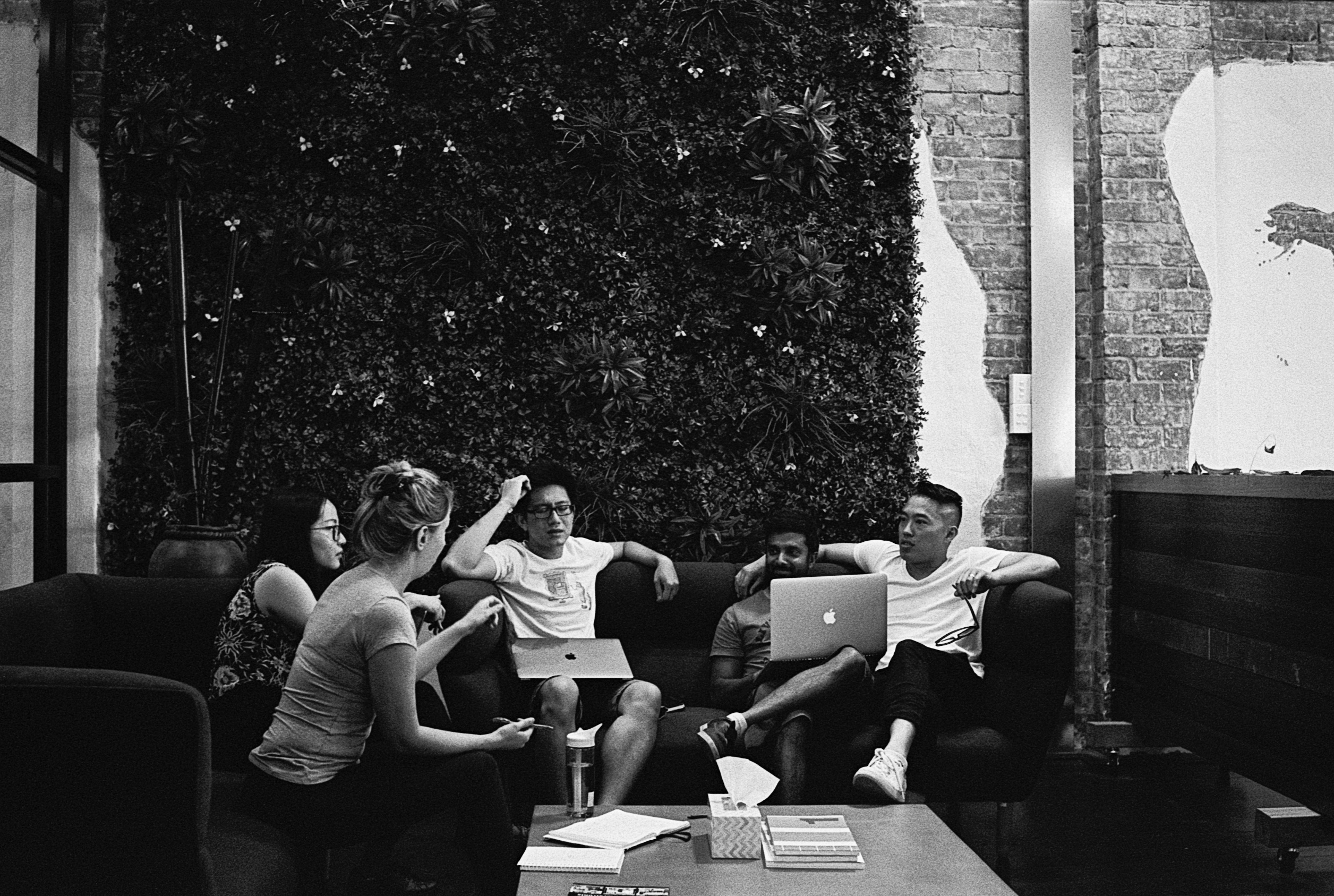Future Proof your Business
Share

This is a transcript of a video posted by Jacob Morgan who is one of the world’s leading authorities on the Future of Work. He is a best-selling author, keynote speaker and futurist who advises business leaders and organisations all over the world; KPMG, Pandora, Cisco, and T-Mobile to name a few. Originally targeted to help employees with their self-development, we’ve updated it to help employers future proof their workforce
1. Collaboration
In the world of work today, the opportunity to collaborate has become 24/7. Across cities and time zones, across business verticals, across channels, much of the work done today is via digital tools in a dynamic, mobile world. It is very important, therefore, that employees know how to work cooperatively and respectfully with these tools.
2. Communication
Likewise, the necessity to communicate has become ever-present and the importance of being heard – more significant than ever. Amongst a variety of digital tools, Whatsapp, Slack, Emails and Google Hangouts, where everything is being communicated, all the time, everywhere – it is harder than ever to ‘fight for newsfeed space’ or cut through the noise. Successful employees are those who can communicate in a way that will ensure they are being heard to avoid getting forgotten or lost.

3. Service Orientated
For years we’ve been talking about the importance of customer service – that the “Customer is Always Right”. But Jacob says that actually, we should be more aware of serving the people around us and that jobs in the modern world of work should be thought of as helping everyone. He proposes that it permeates between our work lives and our private lives, and argues that the people who are helpful and accomodating to everyone, are the ones who others want to be friends with or work for. These are the people who are most likely to get ahead as leaders and mentors in our future workforce.
4. Entrepreneurial Thinkers
Jacob describes a situation that many people may be familiar with. Instead of exploring challenges, we are more inclined to give up or take the easy route reasoning that we don’t have a budget or don’t authority to attempt a new workaround. Being a little “scrappy” or thinking like an entrepreneur on the other hand, will empower workers to take the initiative and explore newer or cheaper alternatives, and find ways of problem-solving outside of the box. Those who show signs of innovation and hypothesising creatively about solutions for organisational problems are likely to prosper in the Future of Work.
5. Accountability & Speaking up
In the new world of work, there may not always be a hierarchical structure. Individuals that are self-motivated are essential therefore – who will take responsibility for their work and hold themselves accountable. Jacob goes on to remind us that we are the masters of our own career. Instead of complaining about the status quo, employee’s should own their experience, think positively and be vocal about how it could be improved to benefit the whole organisation.
6. Technology Friendly
Tech is evolving faster than ever and the possibilities are limitless. All of us should be getting comfortable with learning new tools and embracing the possibilities. Jacob tells the story of chess: despite it becoming a computer game, the old fashioned board game is more popular than ever. The best players are just using the tech version as an asset, that can teach them new skills which they can then use to advance their game IRL (in real life), just like the most talented players in the workplace of tomorrow.
7. Eternal Students
Academic institutions or organizations cannot teach what is needed to succeed at work anymore. Capabilities will be outdated by the time of graduation anyway! The most successful modern employees will continue their personal education alongside their career, whether it’s a podcast on the commute, industry events or a little “extra-curricular” reading over their weekend coffee. Look to hire interested people, who will help to develop and educate your workforce.

8. Growth mindset
Many people feel stuck at work because there is a perception that intelligence is fixed, and learnings or capabilities are finite. Jacob discourages this kind of mindset and instead advises employees to think of themselves like Apps – constantly updating to new improved versions. Future-proofing your business means looking for candidates who can “update their features” and “tweak their code” as they evolve personally and professionally.
9. Ability to Disconnect
The first and last thing we do every day is to check our phones. We are connected all the time – whilst we’re at dinner, whilst we’re on holiday… every free waking moment! But it is also very important for us to learn to disconnect from technology too. “Connectivity does not mean availability.” We’re obsessed with being permanently online but that doesn’t necessarily mean we are actually fully available. We must learn to disengage when we need to so that we can continue functioning in the real world, focused on real-life, on relationships between real people.
10. Ability to say NO
Although we must look for employees who are as helpful as they possibly can be to the people around them (Skill 3) it is important they know when to say “no”. If everyone keeps asking for things: managers, friends, partners… it is impossible to do everything well. Instead, the most successful employees will set boundaries and prioritise in a respectful but assertive way to ensure they are performing at their best.
11. Self-Awareness
If we go through the motions without questioning ourselves every step of the way, we cannot be performing as efficiently as possible. Look for people who can articulate their own strengths, weaknesses, best ways of working….and they will be better able to identify what companies or projects they should be involved with and what they are best avoiding or delegating to a co-worker.
12. Empathy
Jacob notes that organisations (especially in the United States) have developed great sympathy, understanding the difficulty and challenges that employees may go through, but not really empathically taking into account other people’s points of view. Ultimately, despite the advancements of AI and Technology in the future of work, we’re always going to be working with people, so it is important to understand other points of views. It is important in the future of work that we’re able to really know and work with humans, understanding and anticipating other perspectives.
This article originally appeared here.



















Follow us on social media